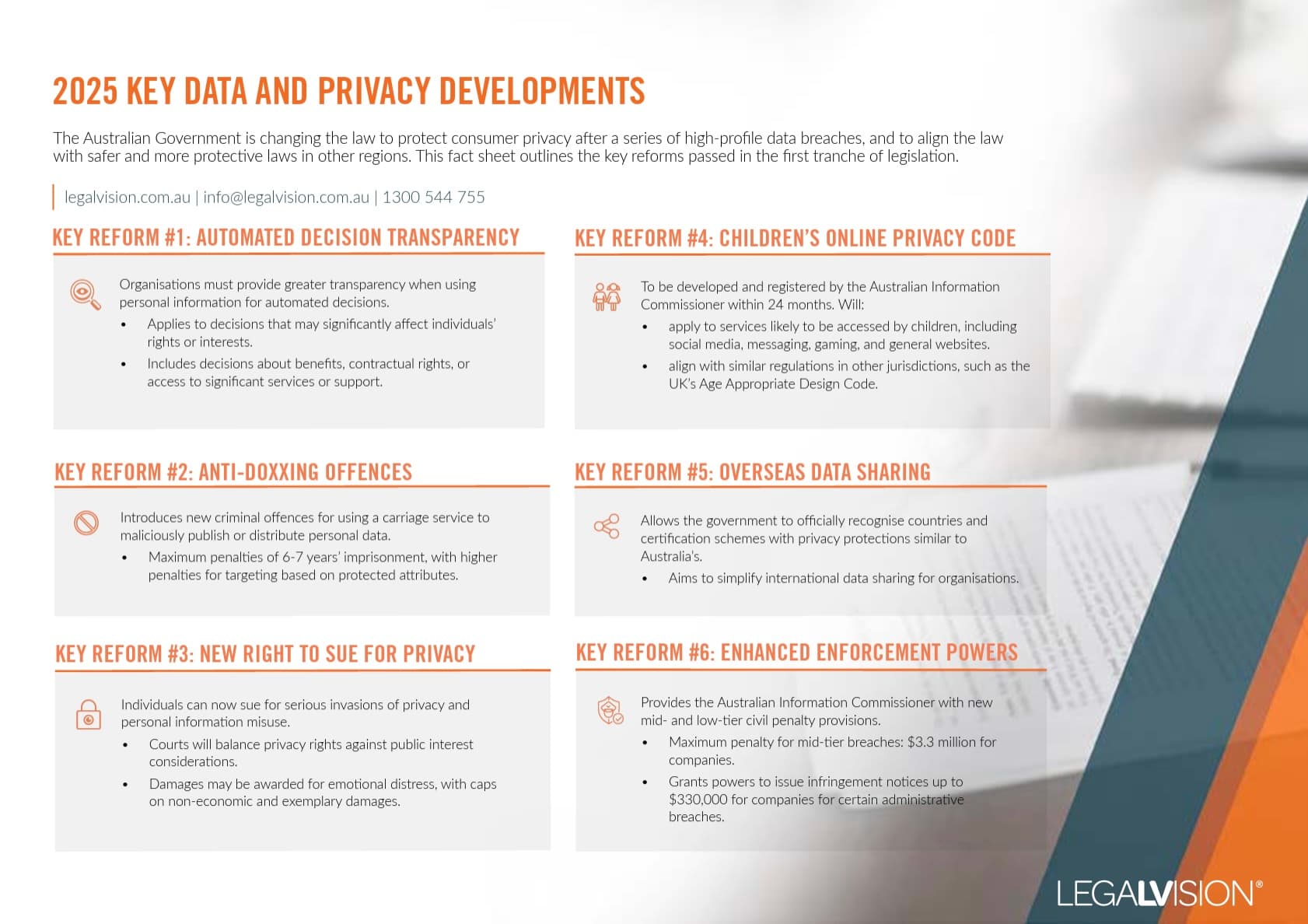Table of Contents
As a utilities and environmental business that provides products or services to your customers, you have certain obligations under Australian consumer law. Australian consumer law protects customers from faulty or low-quality products and substandard service. This article will explain the fundamental rights that your buyers have and what you can do to ensure that you stay in line with consumer law.
Quality of Products
There are a few key guarantees that all consumers in Australia can rely on when buying your products.
| Acceptable quality | Your products must be safe, durable and free from defects. For example, you cannot sell a fractured solar panel to a consumer. |
| Fit for a particular purpose | If a customer tells you that they need a product for a specific purpose, you cannot sell them a product that is unsuitable for that purpose. For example, if a customer asks for generators to power their free-standing outdoor dining area, you cannot sell them generators they cannot keep outside. |
| Matches description | If you advertise or describe a product with certain specifications or characteristics, the product you sell must match your description. For example, if a customer has ordered water pipes with a 10cm diameter from you online, you cannot deliver pipes with an 8cm diameter. |
| Matches sample model | Products delivered to consumers must match any sample products you showed the customer. For example, if a customer comes into your business and orders an electricity meter after you show them a sample model, the delivered electricity meter must match the sample. |
| Extra promises | You must uphold promises or guarantees you make to the customer. For example, if you claim that a set of solar panels will last 20 years, they must last 20 years. |
| Repairs and spare parts | If you manufacture or import the products you sell, you must provide your customers with repairs and spare parts for those products for a reasonable period after they buy the products. What a reasonable period is will depend on the product. |
Consequences of Selling Unsuitable Products
If you sell a product that does not meet the product requirements under consumer law, your customers can take legal action against your business. Following this, they might obtain a replacement or compensation.
For a utilities or environmental business, you may need to also pay for the time your customer has wasted. For example, if your customer purchased defective solar panels from you to power their business, you may owe them compensation for the work they have missed out on.
Quality of Services
If you provide utilities or environmental services, you should be aware of several key rights and consumer guarantees. These guarantees apply primarily to businesses that provide services, such as installing utilities equipment or providing environmentally friendly waste management services.
| Due care and skill | When carrying out your services, your work must be of a quality that demonstrates an appropriate level of care and skill. It must be at least as good as the work of a competent service provider with average skills and experience. |
| Fit for a particular purpose | If a customer engages your services for a specific purpose, you must ensure the services you provide serve that purpose. For example, if a customer asks you to install lighting fixtures so that their entire space will be very bright, you cannot install dim lightbulbs that do not cover the whole space. |
| Reasonable time | Suppose you have not agreed on a particular timeframe for completing your services. In that case, you must deliver them within a reasonable time, depending on the nature of the services and external factors like weather or supply shortages. |
Complying With Consumer Law
Ensuring your business meets its obligations under consumer law does not have to be complicated. You can take steps to avoid dealing with customers who have been sold faulty products or experienced substandard service. In particular, your utilities business should:
- check the quality of your products before you sell them;
- contract with reliable suppliers that you trust;
- avoid making promises you cannot keep; and
- listen to and investigate customer complaints.

This factsheet outlines the Australian Government’s strengthened consumer privacy laws in 2025 following major data breaches and their alignment with global standards.
Key Takeaways
It is essential to meet your consumer law obligations as a utilities and environmental business. When selling goods, your products must be of acceptable quality, fit for purpose, and match product descriptions. If you make any promises about the product, you must meet them. You must also provide spare parts and repairs for a reasonable period after the customer buys your product.
Further, when performing services, you must do so with appropriate care and skill. Likewise, you should perform your services within a reasonable time.
If you need help meeting your consumer law obligations, our experienced environmental and utilities lawyers can assist as part of our LegalVision membership. For a low monthly fee, you will have unlimited access to lawyers to answer your questions and draft and review your documents. Call us today on 1300 544 755 or visit our membership page.
We appreciate your feedback – your submission has been successfully received.











